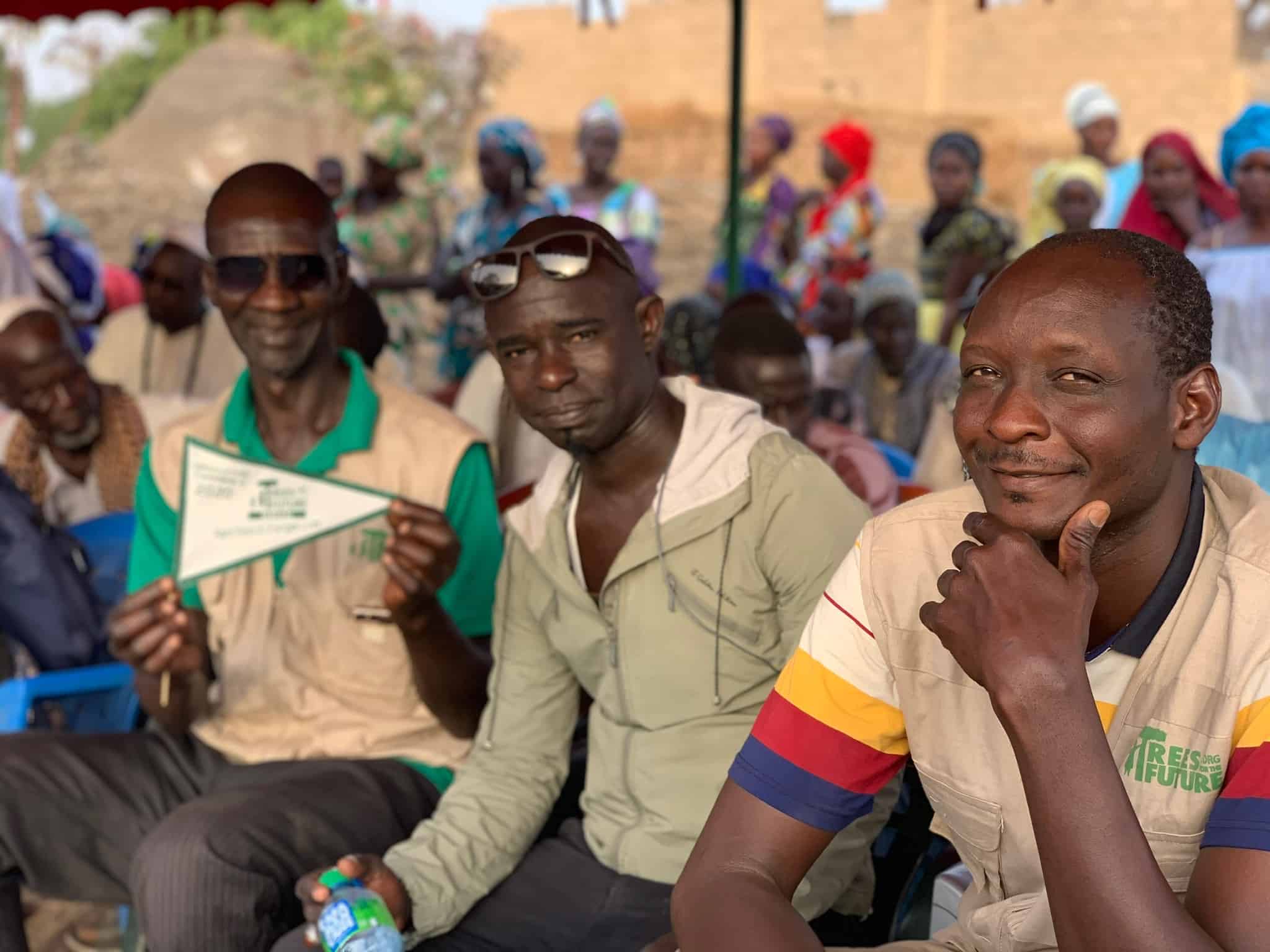Senegalese Farming Group Embraces Solution to Hunger, Poverty, Deforestation
86 farmers successfully complete regenerative ag program with Trees for the Future
Kaffrine, Senegal (January 28, 2020) – 86 smallholder farmers are celebrating their completion of a four-year Forest Garden program designed to end food and financial insecurity while eliminating farmer-caused deforestation. Nonprofit Trees for the Future (TREES) educates and trains farmers to protect their land, diversify the crops they produce, and optimize their available space.
“The energy today was electric. The entire community was here celebrating with these Forest Garden farmers,” said Deputy Director of Programs Ashleigh Burgess. “When farmers succeed, so do their families and neighbors. The nutritional and economic health of this village has been transformed by embracing a regenerative approach to agriculture.”
The farmers joined TREES in April, 2016 after years of growing much of the same traditional cash crop: peanuts. But harvests and returns from the degraded land were low and unpredictable. Farmers learned how to improve their soil quality by protecting their land and were taught the importance of polyculture, growing more than one crop.
“Today, I’m using my land to its full potential,” said Lead Farmer Gora Ndiaye. “My Forest Garden is full of chilies, eggplant, beans, tomatoes, mangoes, and jujubes. I never thought that farming could be so profitable.”
On average, farmers who complete the TREES Forest Garden program achieve food security within three years and see an income increase of 400% by the end of the four-year program. The 86 Kaffrine farmers planted a combined 1.5 million trees across their farms, about 195 acres of land.
“Beyond helping the population, [these] trees contribute enormously to carbon sequestration,” said a Water and Forest Department representative in attendance.
Family, friends, local officials, and media attended the ceremony, which included traditional dances, gifts for the farmers, and diplomas. Trees for the Future is working with 17,000+ farmers in varying stages of the program across Senegal, Cameroon, Uganda, Kenya, and Tanzania. To learn more about the program and approach visit trees.org.
###
Learn more about Trees for the Future’s work with smallholder farmers, and visit their Forest Garden Training Center to learn how to implement regenerative agriculture practices.
